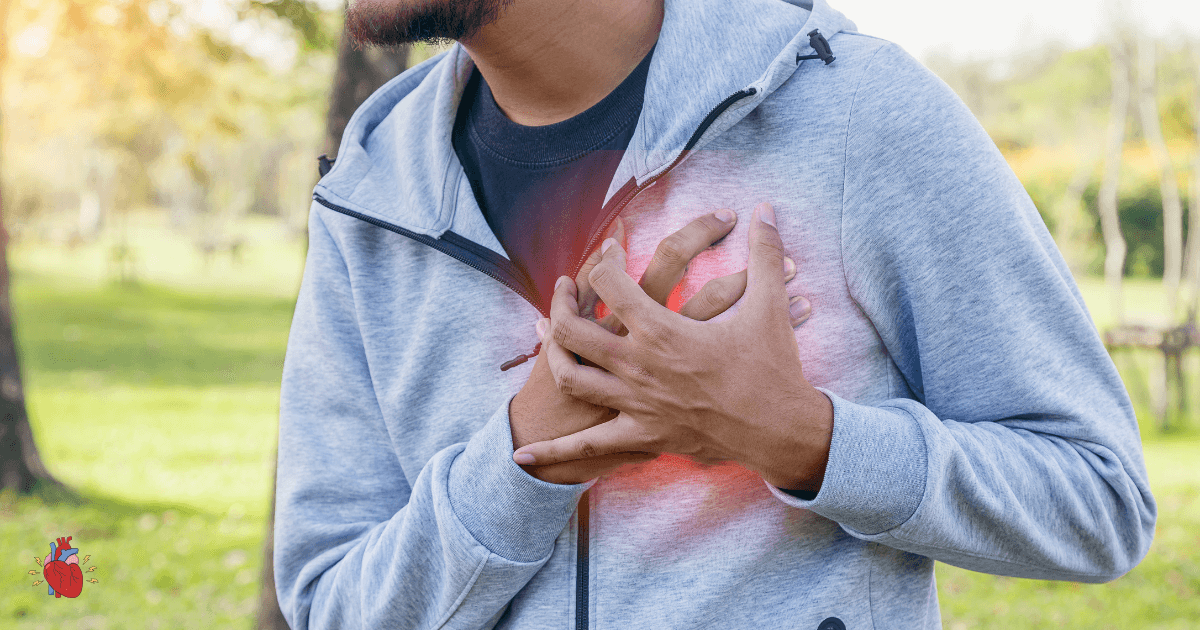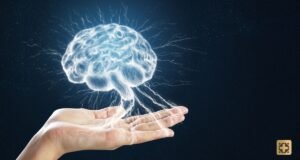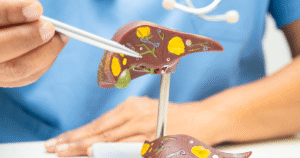A heart attack happens when the blood flow to your heart is suddenly blocked, cutting off the oxygen supply. Without oxygen, parts of the heart muscle begin to die. This condition is usually caused by a buildup of fatty deposits (plaque) in the arteries, known as coronary artery disease.
Heart attacks can come on suddenly, but they often give early warning signs. The problem is, many people either miss or ignore them. Understanding these warning signs can help you or someone you love get help in time. Let’s take a closer look at the 10 most common symptoms that may signal a heart attack.
1. Chest Pain or Discomfort
This is the most classic sign of a heart attack. It may feel like pressure, squeezing, burning, or tightness in the chest. Some people say it feels like “an elephant is sitting on their chest.” The pain might also spread to the arms, neck, jaw, back, or shoulders.
Keep in mind—not everyone feels chest pain the same way. Women and people with diabetes might not feel chest pain at all or may feel it differently. If you ever feel discomfort in your chest, get it checked immediately.
2. Shortness of Breath
Feeling out of breath, even when you’re not doing anything strenuous, can be a warning sign. This happens because the heart is not pumping blood efficiently, which can cause fluid to build up in the lungs.
You might notice it when you walk short distances, climb stairs, or even when you’re resting. Some people also experience a persistent cough or wheezing. Don’t ignore these symptoms—especially if they come with chest discomfort or fatigue.
3. Cold Sweats
Breaking out into a cold sweat without any obvious reason—like heat or exercise—can be a warning that your heart is under stress. Cold sweats are a sign that your body is reacting to something serious.
If you’re suddenly sweating and feel uneasy, especially along with other symptoms on this list, seek medical attention immediately.
4. Nausea or Vomiting
Feeling sick to your stomach or vomiting can be symptoms of a heart attack, especially for women. Because these symptoms feel like food poisoning or a stomach bug, many people ignore them.
If you have nausea or vomiting along with chest pain, dizziness, or cold sweats—don’t assume it’s something minor. It could be your heart.
5. Dizziness or Lightheadedness
Suddenly feeling dizzy or like you might faint is another red flag. This often means that your blood pressure has dropped due to your heart not pumping properly.
If dizziness comes with chest pain or shortness of breath, it’s best not to wait. Go to the hospital right away.
6. Extreme Fatigue
Unusual, unexplained fatigue—especially when it lasts for days—is common before a heart attack, particularly in women. You might feel completely drained, even if you haven’t done anything tiring.
If you feel very weak, restless, or unable to do daily activities without becoming exhausted, get a check-up. Your heart might be working too hard to pump enough blood throughout your body.
7. Swelling in the Legs or Feet
Swollen ankles, feet, or legs can be a sign of poor blood circulation. This happens when your heart isn’t pumping effectively and blood pools in the lower parts of your body.
You might also feel numbness or tingling in your legs. If you notice swelling or discoloration, don’t ignore it. It could mean something’s wrong with your heart or blood vessels.
8. Irregular Heartbeat or Palpitations
If you ever feel like your heart is racing, fluttering, or skipping a beat, pay attention. While this can happen from stress or too much caffeine, persistent palpitations may indicate a heart issue.
If your heart feels out of rhythm and you’re also feeling weak, dizzy, or breathless, see a doctor right away.
9. Loud Snoring or Sleep Apnea
Everyone snores occasionally. But if your snoring is loud and sounds like choking or gasping, it could be sleep apnea. This condition disrupts breathing during sleep and puts extra strain on your heart.
Sleep apnea is linked to higher risks of heart attacks and strokes. If your partner notices loud, irregular snoring, talk to your doctor and get tested.
10. Sudden Anxiety or a Sense of Doom
A strange but real symptom—many people feel a deep, unexplained sense of anxiety or fear just before a heart attack. This can feel like something terrible is about to happen, even when nothing seems wrong.
This feeling might come before other symptoms like chest pain or dizziness. If you suddenly feel panicked or uneasy for no clear reason, don’t brush it off. Trust your instincts and get medical help.
Final Thoughts
Heart attacks don’t always follow the same pattern. Some symptoms are subtle and easy to miss. That’s why it’s so important to pay attention to your body.
If you or someone around you experiences any combination of these signs, especially if they come on suddenly, don’t wait. Go to the nearest hospital or call for emergency help. Getting care early can save lives—and yours might be one of them.



